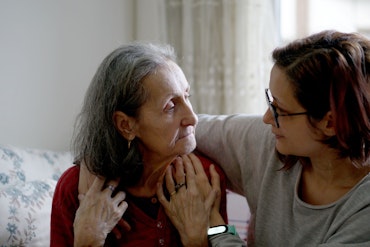Educating all health workers in end of life
Educating the full range of workers in the health care system on how to support patients at end of life will improve the level of care they receive and a project in the Riverina will do just that, says Liz Callaghan, Palliative Care Australia (PCA) chief executive.

Liz Callaghan, Palliative Care Australia (PCA) chief executive, claims we only get one chance to get death right for every Australian.
Ms Callaghan claims the Listen, Acknowledge, Respond project, announced recently by New South Wales Assistant Minister for Health, Senator Fiona Nash, is vital to supporting the work of palliative care.
“We are pleased the Charles Sturt University (CSU) and Integrated Living have been successful in securing $3.3 million in funding to deliver this work. It is important our allied health care workers, social workers and others are supported to understand the needs of Australians facing end of life and their particular care needs,” Ms Callaghan says.
The funding will support three palliative care projects under the title of Listen, Acknowledge, Respond. The projects aim to improve the care and treatment of terminally ill people who are also experiencing mental illness.
The three projects will:
- Develop and deliver Certificate IV and postgraduate courses for allied health care workers to screen, assess and deliver mental health interventions in people with terminal illnesses
- Identify the skill levels and capabilities of allied health care workers to support the psychological and psychosocial needs of people with terminal illnesses
- Investigate how mental health interventions can impact on patients living with a terminal illness.
“Palliative care is one of the best examples of medical care. At its best it is a truly multidisciplinary team, with the patient at the centre,” Ms Callaghan says.
In particular, she claims emphasis on rural and remote services is vital as it is residents in these parts of the country that often struggle to access palliative care.
“We know that 72% of cancer patients who live in a major city were palliative care patients before they died, in rural and remote areas that number is 52%. We need to do more work to ensure where you live does not impact on how you die,” she adds.
“We only get one chance to get death right for every Australian. It is vital that we make the effort to achieve that.”
According to Associate Professor Janelle Wheat, from CSU, mental illness in the terminally ill is under diagnosed and undertreated. People don't report their distress and there is an expectation that dying people will and should experience depression, anxiety and sadness.
“Applying a generic mental health response or intervention to people in palliative care will not deal with their issues.
“Through these projects, we want to address the need to expand the expert knowledge of allied health care workers in this field and ultimately their subsequent care and treatment of people at the end of their lives.”























